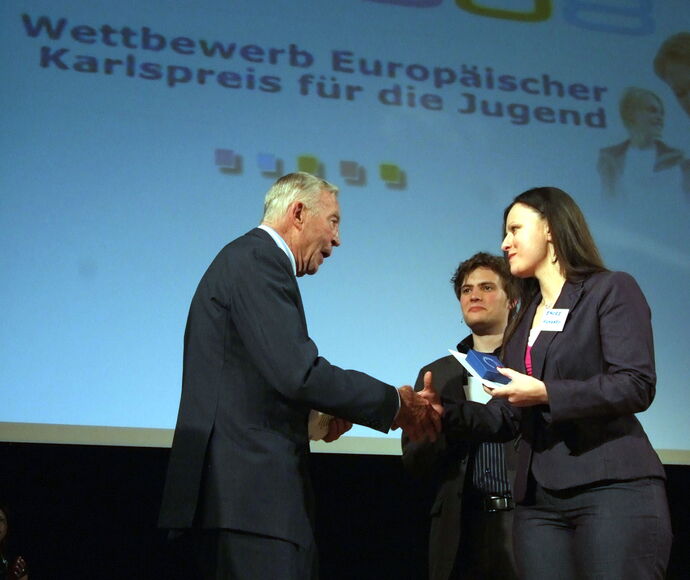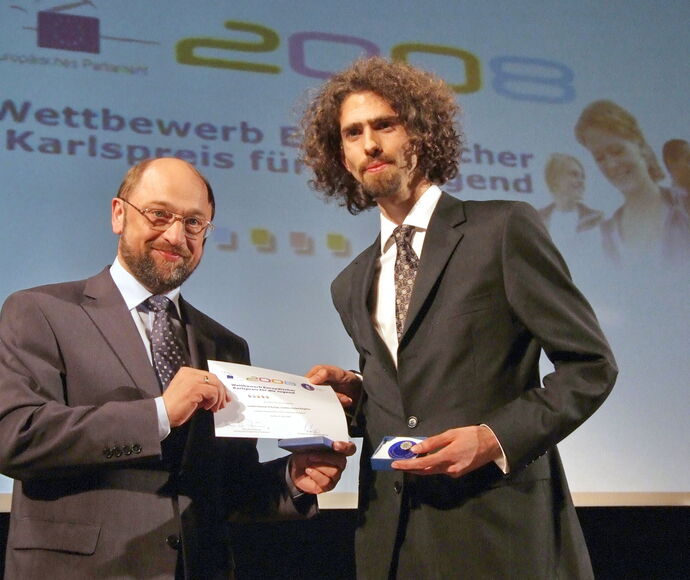European Charlemagne Youth Prize
Winners
Hier steht noch ein Text
Hungary - Students without Boundaries
The Hungarian project ‘Students without Boundaries’ is a real ‘workshop of Europe’ that brings together 135 participants from five European countries every year to learn what Europe is all about: different nationalities and cultures living together, tolerance and respect, and shared European values. Within just a few years, 1,500 participants have grown together to form a community, the ‘Rákàczi family’. This unique experience is the basis for long-term and lasting contacts, a European network for young people and future leaders.


United Kingdom – London Festival of Europe
Two young men, just 22 years old at the time, were unwilling and unable to accept that the metropolis of London, so strongly influenced by the diversity of European cultures, was often reduced to Eurosceptic aspects in the public opinion. This marked the birth of the London Festival of Europe. Within a short time, eleven young people from nine countries came together to create a platform in London for European discourse and cultural diversity. Working exclusively on a voluntary basis, the eleven young people organised a variety of events that highlighted the different facets of a united Europe and invited other young people to discuss the further process of integration.
Greece – Secondary school in Vyronas
Exactly thirty years ago, in May 1978, Konstantin Karamanlis became the first Greek to be awarded the International Charlemagne Prize. The award was intended as a sign of encouragement and a signal that democratic Greece, newly liberated from military dictatorship, should take its place in the European Community as quickly as possible. Just a few months later, a unique project was launched at the secondary school in Vyronas. Since then, since 1979, the school has closely followed and experienced all the important stages of European unification for and with its pupils, thereby giving thousands of pupils an experience of European identity.
